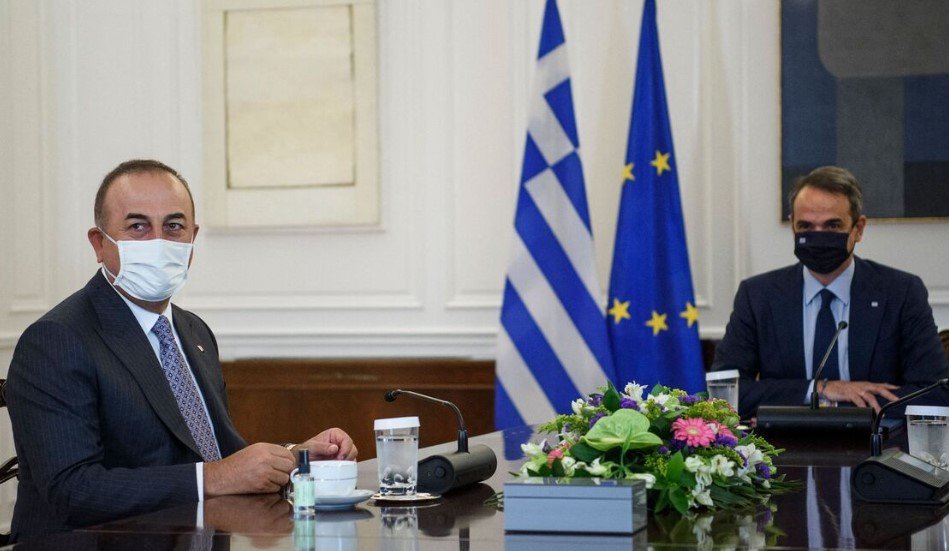Greece finds itself walking a careful line in the Middle East, managing its strategic alliance with Israel while responding to mounting global concern over Israeli military actions in Gaza. This balancing act has tested Athens’ diplomatic skills amid a complex and rapidly evolving conflict.
Since early this year, Greece has actively voiced its concerns through international channels, joining European partners in condemning Israeli military escalations. At the same time, it has kept dialogue open with key regional players, seeking to ease humanitarian suffering while safeguarding its own geopolitical interests.
A Diplomatic Stance Reflecting Both Concern and Commitment
Greece’s recent move to join the UK, Denmark, France, and Slovenia in a United Nations Security Council statement marks a significant, if cautious, rebuke of Israeli policies. The statement, delivered by Greece’s charge d’affaires at the UN, Yiannis Stamatelos, criticized potential annexation moves and demanded immediate humanitarian aid access to Gaza.
It also called for the release of Hamas-held hostages and reaffirmed support for the long-discussed two-state solution — a diplomatic mantra echoing through decades of conflict. Yet, beneath this firm language lies the nuance of Athens’ approach: a commitment to Israel’s right to exist peacefully, alongside a call for restraint and humanitarian consideration.
Prime Minister Kyriakos Mitsotakis has kept close contact with Israeli Prime Minister Benjamin Netanyahu, Israeli President Isaac Herzog, and Palestinian Authority President Mahmoud Abbas. This ongoing conversation underscores Greece’s intent to play a stabilizing role — speaking frankly but seeking to avoid alienating any party.
Humanitarian Efforts Amid Political Complexities
Not all of Greece’s actions are diplomatic rhetoric. On a recent Saturday, two Greek Air Force transport planes delivered 8.5 tons of food into Gaza, in coordination with Israeli and Jordanian authorities. This operation, kept under wraps until after completion, signals Athens’ willingness to step in where civilian suffering mounts, even when it means quietly cooperating with all sides.
This dual-track approach—combining public criticism with behind-the-scenes assistance—is a delicate dance. It aims to balance humanitarian priorities with the hard realities of Middle Eastern geopolitics, where alliances can shift overnight, and every move is scrutinized.

Navigating International and Regional Pressures
Greece’s Security Council term began in January 2025, giving it a rare platform to shape international discussions about the Middle East. In that role, Athens has had to juggle multiple pressures.
On one hand, the European Union broadly leans toward condemning Israeli settlement expansions and advocating for Palestinian rights. On the other, Greece’s longstanding strategic ties with Israel — including defense cooperation and shared economic interests — pull it in another direction.
The challenge for Athens is to remain credible in both camps. This means addressing concerns about Gaza’s humanitarian crisis without alienating a key ally in Israel. It also involves engaging with the Palestinian leadership without appearing to side against Israel’s security concerns.
The Risk of Diplomatic Overstretch
There’s no denying this is a tough tightrope. Some analysts warn Greece risks spreading itself too thin — trying to appease multiple sides could leave it caught in the middle, with limited influence to push any lasting solution.
Greek diplomacy has traditionally been more reserved in Middle East affairs, often relying on behind-the-scenes channels. But the intensification of the Israel-Palestine conflict and the increased visibility of Greece’s Security Council seat have pushed Athens into a more active, sometimes public, role.
Whether this shift will pay off remains to be seen. The region is fraught with deep-rooted mistrust and historical grievances, meaning diplomatic progress is often slow and incremental. Still, Greece’s willingness to engage — publicly and privately — offers a glimmer of hope for a more balanced regional approach.
How Athens’ Position Reflects Broader European Dynamics
Greece’s stance mirrors a larger European challenge: how to reconcile strategic partnerships with Israel against rising concerns over human rights and international law violations. The European Union, for instance, has seen internal debates and divisions on how to respond to recent escalations.
Athens’ Security Council actions and its humanitarian deliveries underscore this tightrope walk — supporting Israel’s security claims, while pushing for humanitarian relief and a two-state solution.
Here’s a quick glance at Greece’s diplomatic balancing act:
| Aspect | Greece’s Position | Implication |
|---|---|---|
| Security Council Statement | Criticizes annexation, calls for aid, supports two-state | Aligns with EU’s moderate criticism |
| Relations with Israel | Close dialogue with Netanyahu and Herzog | Preserves strategic alliance |
| Humanitarian Aid | Covert food drops into Gaza with Israeli coordination | Shows practical compassion |
| Engagement with Palestinians | Talks with Palestinian Authority President Abbas | Signals balanced regional approach |
This table sums up the careful blend of firmness and flexibility that Greece is trying to maintain.
Looking Ahead: Greece’s Role in a Volatile Region
As the conflict continues, Greece’s role will likely remain complex and fraught with challenges. Its diplomatic tightrope walk is a test of patience, pragmatism, and sometimes quiet courage.
For a country often overshadowed in broader Middle Eastern geopolitics, Athens’ active Security Council term and its recent moves could shape how smaller regional players contribute to peace and stability.
Will Greece manage to keep all sides engaged without tipping the balance? Only time will tell. But for now, its diplomatic balancing act is a story of a small power trying to stay relevant and responsible amid one of the most enduring conflicts of our time.
